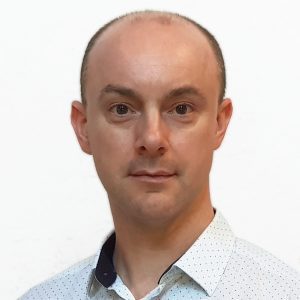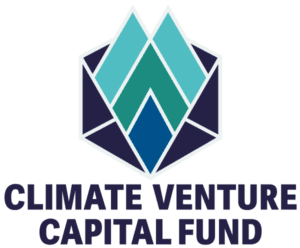Dr Jez Weston is a co-founder of the Climate VC Fund. A former rocket scientist and unicycle builder, he came to New Zealand via Japan and just loves things that go really fast. Seems a natural fit for venture capital, then. Vincent Heeringa asked Jez about his journey into climate action.
Vincent: Nice to chat during lockdown, Jez. What’s the Dr in Dr Jez? It sounds very rock n’ roll.
Jez: It’s in welding, or in more fancy language, metallurgy. Which is indeed very rock n’ roll.
You can do a degree in welding?
Yes, just think about what’s happened in materials technology in the last few years. New alloys are always being developed and people keep inventing new kinds of welding, for example, laser welding and friction-stir welding which SpaceX is using for its aluminium rockets. Tesla uses laser welding in its aluminium car bodies. So, yes, lots to study and still to learn.
What was your passion as a young fella?
I did my first degree in material science because I wanted to make better mountain bikes. I was really into bikes – still am. I didn’t end up building a mountain bike, but I did build the world’s first carbon fibre unicycle. Carbon fibre has won the contest for frames – it drives me nuts that we’re still making cars out of steel.
Where did those degrees take you?

I imagined I’d have a career in high-performance structures – making things that go fast is cool, whether that’s cars or rockets or bikes. I landed a role in Japan working on rockets at the National Research for Metals (now Materials). Later on, I realised that a PhD in welding could have led to a career in 3D printing but I found myself going in another direction.
How did you end up in New Zealand? It’s not a natural move for a rocket scientist, just sayin’.
Indeed, there weren’t many opportunities for rocket engineers at the time – although that has changed now. Back in 2001 I just really wanted to live in New Zealand. The New Zealanders I’d met I got on with and we shared common values. I moved to Wellington and got a job in programming.
Ah, the heady days of 2001 – were you a Ruby on Rails nut like everyone else in Wellington?
No, I was too early for that. I’m pretty old school: C++ pretty much. I did that for a while but I really missed science. I’d spent so much time with scientists and I love just finding things out. I got a role working in science policy for the Royal Society, advising central government on policy, providing input from a science perspective. There was quite a change in science and innovation through the Ministry of Research, Science, and Technology, then the Ministry of Science and Innovation, and now MBIE. I also did quite a lot of work on energy policy and climate change.
When did climate become an interest?
I’d always been paying attention to climate change – how can you not? In my PhD I was interested in making cars lighter so they could be more efficient and less polluting. Also, my work in government showed that public policy sets the context and incentives for markets. I’m not a believer that markets operate in isolation – the role of government is really critical. Sadly, what we’ve seen on the climate is that scientists for a few decades have been saying it’s a growing problem and action must be taken but so little has been done. It’s been very frustrating to watch from the sidelines.
Is that the motivation for getting involved in a fund?
Yes, climate change creates an interesting context for opportunities. You could say that it’s an easy investment decision because the solutions are so desperately needed. And the longer we fail to act the bigger the need becomes. I grew up in the Cold War and climate change deserves the same seriousness of response. It’s a slower time frame but a doom-threatening scenario nonetheless.
Tell us about the origins of the fund.
I met Lance in 2017 when we were on one of the Auckland University ‘Return on Science’ investment committees. Lot of researchers come to the committee with ideas and you have to form an opinion quite quickly. We challenged each other and I respected how constructive those debates were. We kept talking and discovered we had similar views on climate. We agreed on the fundamentals: the size of the market opportunity and the moral responsibility to respond to the biggest challenge of our time.
Did you find it hard to shift from science and policy discipline to commerce?
No because I came from a commercial background. I’m an engineer. I love the fact that we can imagine things but if we want it, someone in a factory has to make it. I want to see real solutions for climate change and they need to be market-ready.
I suppose that’s why you liked MGA Thermal, the fund’s first investment?
I absolutely love it. It’s very applicable and has a ready market. It’s also in my area. I don’t think they were expecting to find an expert on aluminium melting among their investors. They hadn’t been asked those kind of questions by other investors. What kind of questions? Well, for example, what happens at the interface between molten metal and the container it’s held in? Usually it sits in a mould for a few minutes. But this will sit there for 30 years – how will you ensure that the substrate stays intact? I was really happy with the level of thinking they’d done. And I think my input was helpful. Now when they present to industry they have clear answers.
What does success for the fund look like in, say, three years?
Some really solid investments in companies that are scaling up and providing their tech to mainstream industry. I want to see us locking in solutions. Right now we’re locking in problems – if you buy a ute now, you’re locking in 20 years of emissions problems. But if we flip that around we now can lock in emissions reductions.
And in the long term?
There’s a belief that solving this is really hard and as a result we’re kicking the can down the road. That belief is one of the reasons we’ve got nowhere. And of course it’s being weaponised and used against effective action. In 20 years I want to hear people saying ‘hey, that wasn’t as hard as we thought. We reduced emissions and it was profitable.’ But it will be profitable because not many others saw the same opportunity as we do now.
Thanks Jez.
It’s a pleasure Vincent and just a reminder that the fund is still open to investment.
You can register for an investor pack here.
